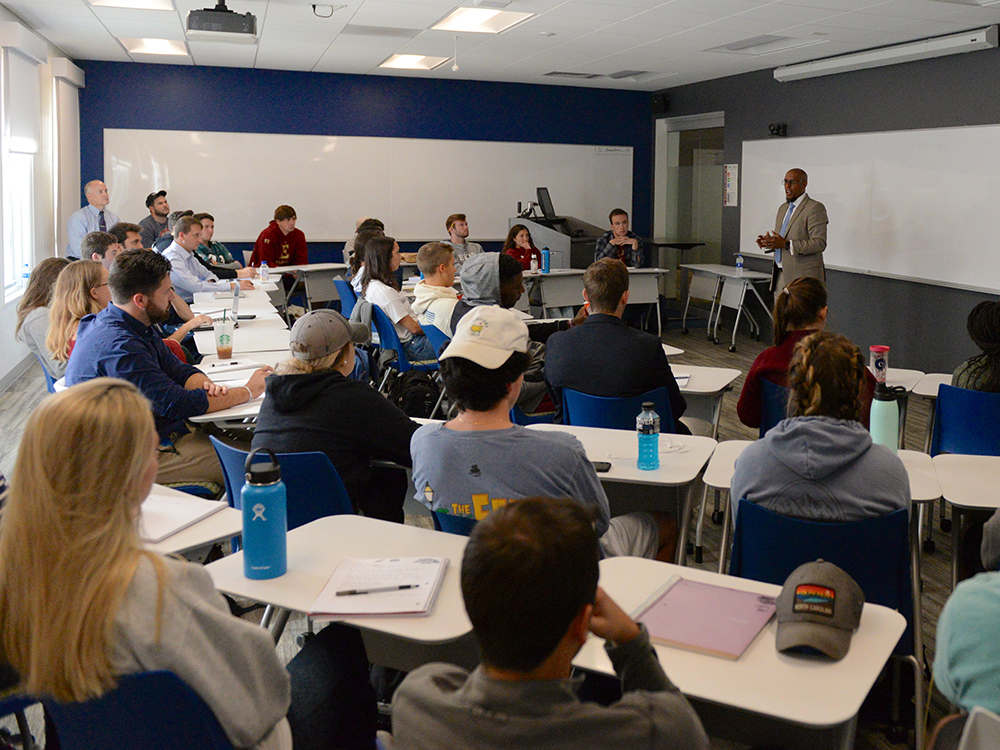Donald Remy spoke to several Elon University classes on Nov. 5, addressing topics related to amateurism, the NCAA’s history and present-day issues facing collegiate athletics.
Less than a month ago, the NCAA – the governing body of intercollegiate athletics – announced its decision to allow student-athletes to profit from their name, image and likeness (NIL). The decision was a major shift for the organization, which has historically prohibited college athletes from being paid in order to preserve its amateurism principles.

NCAA Chief Legal Officer and COO Donald Remy discussed this topic and a multitude of others during a campus visit this week. During a lunchtime conversation on Nov. 5 with several gathered classes, Remy, who is second-in-command to NCAA President Mark Emmert, outlined his own professional career path, the history of his organization, and forthcoming issues facing collegiate athletics.
Remy spoke to students about the state and federal legislation on NILs, as well as the NCAA’s decision to craft rules that would permit compensation within the collegiate model. He also addressed issues on the O’Bannon antitrust case, compensating student-athletes, the “one and done” rule and Title IX.
“In our effort to bring sport leaders to campus to discuss important issues, Donald Remy’s visit could not have been more timely,” said Tony Weaver, associate professor and chair in the Sport Management Department. “Students had an opportunity to learn about the NCAA’s perspective on numerous topics including gender equity, student-athlete compensation, and public relations strategies.”
For photos of Remy’s lecture, visit the School of Communications Flickr page.
As COO, Remy serves as a key strategic advisor to Emmert and a member of the Senior Management Group. Remy oversees all aspects of the NCAA’s legal, government relations and governance programs. Further, he oversees the support of the Committee on Infractions, which processes NCAA enforcement actions and by-law violations.
Before the NCAA, Remy was a partner at Latham & Watkins and chair of a global practice group, representing individuals and corporate clients in investigations and proceedings involving compliance with international business statutes.
Remy also held high-level positions in the government and corporate environment, including deputy assistant attorney general at the U.S. Department of Justice; assistant to the General Counsel of the Army; law clerk to the 6th Circuit United States Court of Appeals; and senior vice president, deputy general counsel and chief compliance officer at Fannie Mae.
He earned a bachelor’s degree in political science from Louisiana State University, graduating with honors and commissioned as a second lieutenant in the U.S. Army, where he served as a tank commander during Desert Storm. He received a juris doctorate from the Howard University School of Law, and graduated top of his class.
The NCAA, which comprises 1,250 member institutions, conferences and organizations, is responsible for governing and protecting the integrity of intercollegiate athletics.



